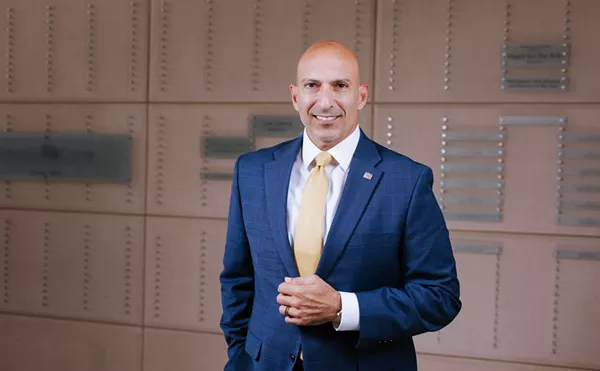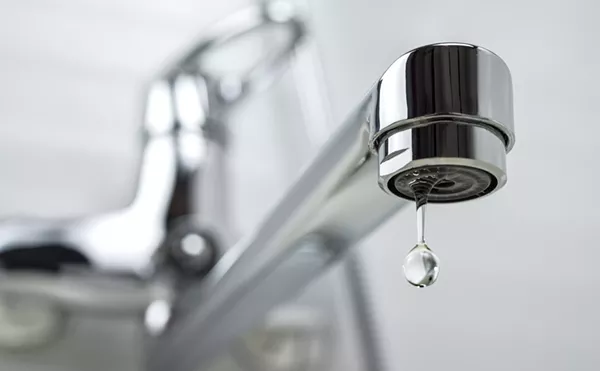You're forgiven if you have trouble keeping straight all the times that Johnson & Johnson has gotten in trouble. In recent years, the pharmaceutical maker has faced an FBI investigation over a surgical device that caused doctors to accidentally spread cancer in women, multibillion-dollar criminal penalties for marketing a powerful anti-psychotic drug to children and the elderly and then hiding the fact that it caused boys to grow breasts, and, as we've covered, thousands of class action lawsuits over its so-called "transvaginal mesh" products.
It's always awkward when a panel of judges gets to determine why someone's urethra is in pain, but welcome to the world of personal injury medical litigation and the Texas Court of Appeals. Southern Dallas' own Linda Batiste was the first woman to win a mesh case against Johnson & Johnson when a Dallas jury awarded her $1.2 million in 2014 for extreme pain she said was caused by vaginal mesh, a plastic medical implant doctors have used to treat incontinence and organ prolapse in women. Patient advocates hailed the jury's decision as a landmark, but Batiste never saw her winnings after Johnson & Johnson immediately appealed. Then, in August, Batiste died at the age of 62.
On November 5, the 5th Court of Appeals in Dallas, led by Rick Perry-appointee Robert Fillmore, sided with Johnson & Johnson and threw out all of her estate's winnings. "We conclude there is no evidence any curling, fraying or roping of the mesh was a cause-in-fact of Batiste’s urethral pain," says the opinion.
The judges didn't deny that "it is clearly established in the record that pelvic pain is a known possible complication from the implantation" of the mesh devices. But the medical experts who testified to Batiste's pain didn't draw a direct cause-and-effect between her specific surgery and her resulting pain, the court said. The doctors said the device had probably hurt her and demonstrated how, but their testimony wasn't specific enough for Fillmore and his colleagues. "While proving causation may be difficult, that does not excuse the plaintiff from introducing some evidence of causation," the court argued.
Few doctors will ever testify with certainty that a specific medical device, drug or surgery causes a specific type of pain, argues an attorney familiar with mesh litigation but not involved with this case. Medical experts tend to draw conclusions in more cautious terms. "At the end of the day, no doctor, or no intellectually honest doctor, I don't think, would testify ... with absolute certainty why things like that cause pain," the attorney says.
In its decision, the court could have demanded a retrial. But instead, Fillmore and company simply overturned the jury's verdict along with the financial reward, a move the attorney says is relatively unusual but not surprising in Texas.
"I would say that the Court of Appeals has been extremely business-centric over the last several years," says the attorney, who didn't want to criticize the court under his name. "It's even a bigger problem because the Supreme Court is also known as being relatively business-friendly."
Batiste had suffered from a lifetime of medical problems and was diagnosed with cancer several months before her death. "She would make you smile and laugh even in the midst of her pain,” her son James said after her death. “I’m still amazed she’s gone; I’m still amazed about the strength she had while dying.”

Audio By Carbonatix
[
{
"name": "GPT - Billboard - Slot Inline - Content - Labeled - No Desktop",
"component": "21721571",
"insertPoint": "2",
"requiredCountToDisplay": "2"
},{
"name": "STN Player - Float - Mobile Only ",
"component": "21861991",
"insertPoint": "2",
"requiredCountToDisplay": "2"
},{
"name": "Editor Picks",
"component": "17105533",
"insertPoint": "4",
"requiredCountToDisplay": "1"
},{
"name": "Inline Links",
"component": "18349797",
"insertPoint": "8th",
"startingPoint": 8,
"requiredCountToDisplay": "7",
"maxInsertions": 25
},{
"name": "GPT - 2x Rectangles Desktop, Tower on Mobile - Labeled",
"component": "22608066",
"insertPoint": "8th",
"startingPoint": 8,
"requiredCountToDisplay": "7",
"maxInsertions": 25
},{
"name": "Inline Links",
"component": "18349797",
"insertPoint": "8th",
"startingPoint": 12,
"requiredCountToDisplay": "11",
"maxInsertions": 25
},{
"name": "GPT - Leaderboard to Tower - Slot Auto-select - Labeled",
"component": "17357520",
"insertPoint": "8th",
"startingPoint": 12,
"requiredCountToDisplay": "11",
"maxInsertions": 25
}
]











